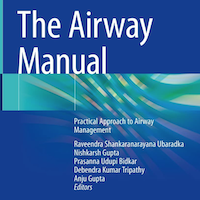
The EM Educator Series: Sepsis in the ED
These posts provide brief mini-cases followed by key questions to consider while working. The featured questions provide important learning points for those working with you, as well as vital items to consider in the evaluation... read more

Social Determinants of Health: A Missing Link in Emergency Medicine Training
The health of a population depends upon several factors, including disease, public health initiatives, and the social determinants of health (SDH). These factors often converge in the emergency department (ED) where the impact... read more

Fatigue and Sleep Deprivation
Being a doctor typically involves high-intensity, time-pressured working patterns. These can lead to sleep deprivation and fatigue, effecting doctors' health, well-being and performance, their safety and that of their patients.... read more

Effect of a National Standard for Deteriorating Patients on Intensive Care Admissions Due to Cardiac Arrest in Australia
The main objective of this study is to assess whether a national standard for improving care of deteriorating patients affected ICU admissions following cardiac arrests from hospital wards. Introducing a national standard... read more

IV Fluids and Solutions Quick Reference Guide Cheat Sheet
Intravenous solutions are used in fluid replacement therapy by changing the composition of the serum by adding fluids and electrolytes. Quick reference guide on the different intravenous solutions.... read more

Chloride and Other Electrolyte Concentrations in Commonly Available 5% Albumin Products
This study is the first to identify and document a statistically significant variability in the chloride concentration of available 5% albumin products. This study has also informed a pilot randomized controlled trial examining... read more

We’re Not Ready for a Flu Pandemic
The influenza season is just getting started in the United States, and it already promises to be more severe than usual. Hospital emergency rooms are filling up with flu sufferers, and pharmacies have reported medicine shortages.... read more

Joint Consensus Statement on Postoperative Gastrointestinal Dysfunction Within an Enhanced Recovery
The primary driver of length of stay after bowel surgery, particularly colorectal surgery, is the time to return of gastrointestinal (GI) function. Traditionally, delayed GI recovery was thought to be a routine and unavoidable... read more

Six-month Outcome of Immunocompromised Severe ARDS Patients Rescued by ECMO
Recently diagnosed immunodeficiency is associated with a much better prognosis in ECMO-treated severe ARDS. However, low 6-month survival of our large cohort of immunocompromised patients supports restricting ECMO to patients... read more

Critical Care Notes: Clinical Pocket Guide
This pocket-sized, quick reference is your go-to guide for the clinical information you need to care for adult patients safely and effectively. Completely revised and updated, the 2nd Edition offers even more of what you... read more

Age of Red Cells for Transfusion and Outcomes in Critically Ill Adults
The age of transfused red cells did not affect 90-day mortality among critically ill adults. In an international, multicenter, randomized, double-blind trial, we assigned critically ill adults to receive either the freshest... read more

How Do You Feel? Subjective Perception of Recovery
Long-term subjective and objective outcome appears good in the majority of cardiac arrest survivors. Specific functional and cognitive impairments were found in patients reporting unsatisfactory recovery. Subjective recovery... read more

Healthcare Utilization and Infection in the Week Prior to Sepsis Hospitalization
Over 45% of sepsis patients had clinician-based encounters in the week prior to hospitalization with an increasing frequency of diagnoses for acute infection and antibiotic use in the outpatient setting. These presepsis encounters... read more

Probiotics Offer Powerful Protection Against Sepsis in Infants
Sepsis can occur in just about anyone, including infants. Recent research shows feeding newborns probiotics (healthy bacteria) significantly lowers the child's risk of developing sepsis. The study involved infants in rural... read more

Enhancing Recovery From Sepsis
Survival from sepsis has improved in recent years, resulting in an increasing number of patients who have survived sepsis treatment. Current sepsis guidelines do not provide guidance on posthospital care or recovery. In the... read more

Central Venous Catheter – Which Needle?
A prospective randomised trial comparing insertion success rate and incidence of catheterisation-related complications for subclavian venous catheterisation using a thin-walled introducer needle or a catheter-over-needle... read more

No Electrodes, No Problems
This is what Emmanuel had to say about his innovation: “There are times in the emergency department (ED) when there are no electrodes available to place patient on a monitor. In resource limited settings like Ghana, it... read more








